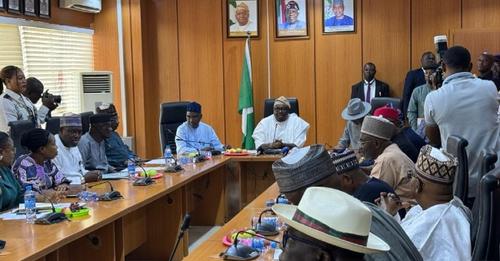Business
FG Initiates Unbundling of 11 DisCos, Mandates Sale of Four

The process of unbundling 11 electricity distribution companies by the Federal Government has been initiated to enhance their efficiency, according to the Minister of Power, Adebayo Adelabu.
During a meeting with the Senate Committee on Power, Adelabu emphasized that while the privatization of these firms would not be reversed, they would be restructured into more effective entities along state lines. Adelabu also highlighted that numerous projects by the Transmission Company of Nigeria have remained incomplete for over 23 years.
The government aims to reorganize the Discos to ensure each state government is aware of the responsible Disco for their respective states, and both federal and state governments should exercise their rights in the operation and management of the Discos.
Additionally, the government plans to franchise the unserved communities under the Discos. In a related development, the Federal Government has directed the sale of Discos that have been taken over by banks and the Assets Management Corporation from their original investors/owners, with four Discos currently under their management.
The United Bank of Africa (UBA) manages the Abuja Electricity Distribution Company, while Fidelity Bank manages the Benin Electricity Distribution Company, Kaduna Electricity Distribution Company, and Kano Electricity Distribution Company.
These four Discos are now under new management because they were unable to repay their loans to the financial institutions. The government has stated that the previous owners of the Discos lacked the necessary expertise and financial capacity to run the companies.
The Senate Committee on Power has criticized the Discos for their inefficiency and called for a complete overhaul of the power firms. The minister has also mentioned the possibility of franchising and allowing smaller Discos to invest in unserved communities.
The Oyo State Government has expressed its interest in exercising its rights in the Ibadan Electricity Distribution Company. The Nigerian Electricity Regulatory Commission has been urged to sanction underperforming Discos, and there is a possibility that licenses may be withdrawn for non-performance.
The government is determined to transform the Discos and is willing to take tough decisions, including changing boards and management if necessary. Some Discos are still under the management of AMCON and certain lenders.
The acquisition of power companies by investors using bank loans has resulted in significant pressure to repay these loans.
However, the power business is a long-term venture, making it difficult for investors to recoup their capital and generate profits in a short period of time.
As a result, many of these investors have been taken over by their lenders, including AMCON and local and international banks. These investors had also promised to invest in and improve the distribution network, but they have failed to fulfill these commitments.
The losses in the Discos, which were expected to decrease, have remained at around 40 percent across the power value chain. The Discos are not investing as anticipated, leading to a lack of progress in the sector. Additionally, there are over 100 uncompleted power transmission projects since 2001, with some projects still ongoing for over 23 years.
The incomplete projects are negatively impacted by factors such as exchange rate calculations, inflation, and variations. It is crucial to complete a power project entirely before it can be energized, and the failure to do so has resulted in wasted investments. However, efforts are being made to ensure that a significant number of these projects are completed this year for the benefit of Nigerians.
In 2003, the power sector faced a metering gap of less than four million meters, prompting the Federal Government to allocate $200 million to a specific company for the acquisition of three million smart meters. Regrettably, even after 21 years, not a single meter was procured by the company, resulting in the loss of the $200 million loan, which was equivalent to N32 billion at the time.
The Minister highlighted that the current metering gap exceeds eight million meters among the 12 million customers in the power sector. Despite this setback, efforts are underway to address this issue, with the establishment of a Presidential Metering Council tasked with acquiring and distributing a minimum of two million meters annually for the next four to five years.
To support this initiative, a seed capital of N75 billion has been allocated, and the Nigeria Sovereign Investment Authority is set to provide additional funding. Furthermore, the Federal Government aims to achieve a power generation capacity of 6,000MW by the end of the year and is engaging with investors to develop 3,000MW of solar power. The Minister emphasized the importance of settling outstanding debts to gas companies and power generation firms to ensure the sustainability of the sector.
